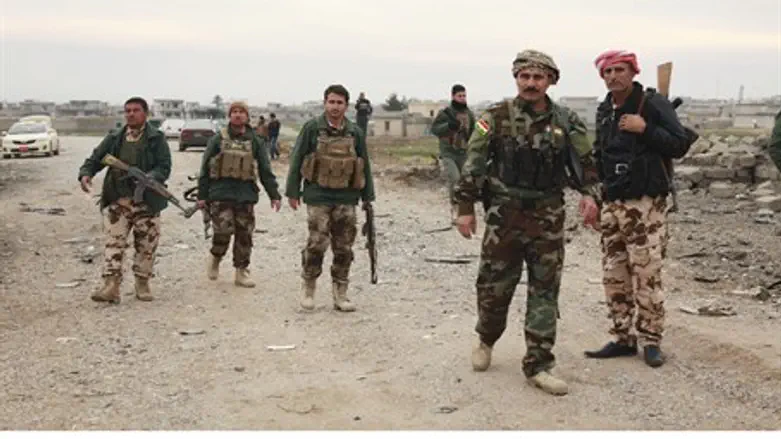
Are the Kurds the West’s last hope in Iraq?
There is speculation that the United States and Iran have reached an understanding on the war with ISIS, which worries Israel and Sunni Arab states. If Iran is being encouraged to take the fight to ISIS, it seems the calculus is that only they are capable of beating back the Islamic State given its influence over the Iraqi government and several Shiite militias. Therefore they should be reinforced, so the logic would continue. But Iraqi Kurdistan has also been on the frontlines of the war and does not represent a major enemy for the United States or Israel or the Sunni Arab states.
In the past, Arab nationalists would point to Kurdistan as just another example of trying to reduce the Arab World’s power. Today, the Kurds are on the precipice of dull independence with their own seasoned military force – the Peshmerga.
“Data varies significantly, but Kurdish officials suggest the Peshmerga force is 190,000 men strong. 35,000 of them are incorporated in the Iraq army,” says Julie Lenarz, Executive Director of the Human Security Centre.
ISIS still has the military advantage in many aspects. While their advance since last summer has been halted in most places, they captured a bundle of modern American military equipment that even Iran would have trouble battling.
“What is clear though is that ISIS has access to a modern arsenal of weapons unmatched in the history of terrorist organizations. ISIS acquired a fleet of US-built Humvees during the assault on Mosul when the Iraqi army fled and abandoned weapons and tanks. In addition, ISIS has about 30 T-55, 15 T-62 and 5 to 10 T-72 tanks, as well as armored vehicles, grenade and rocket launchers, dozens of anti-aircraft guns and missile systems and AK-47s assault rifles.”
It is also difficult to estimate if the total amount of aid going to the Iraqi Kurds is really enough to fight ISIS, whose exact troop numbers remain elusive.
“Nobody seems to know how big ISIS really is. The US puts the number between 20,000 – 30,000 fighters; the Syrian Observatory for Human Rights at 50,000; the Russians at 70,000; and some Kurdish officials even as high as 200,000.”
The split sovereignty between Erbil and Baghdad – the Kurdish Regional Government and the Iraqi federal government – has complicated the Kurds’ ability to reinforce their arsenal. The issue has gotten mention in a number of circles. Last October, it was clear the United States was heavily reliant on Kurdish ground forces against ISIS, especially when it was Peshmerga who came to the aid of Kobane during the city’s siege.
“It has proven difficult for the Kurds to get their hands on modern and advanced weapons because supplier nations made delivery dependent on approval from Baghdad.”
It would be very easy for countries like the United States to ignore that rule, but the US realizes that treating Kurdistan independently on this matter lays the groundwork for treating them independently in every aspect. With that, the US and other countries are still going through Baghdad until they have decided they are ready to allow a slide toward full independence – if they decide at all.
“The situation has somewhat changed since the Kurds are fighting on the front line against ISIS,” says Lenarz. “Germany, for instance, has announced it will send advanced weapons to the Kurds worth €13 million. However, the Kurdish leadership complains that delivery is slow. Britain is said to have delivered no more than 40 heavy machine guns to the Peshmerga to this date.”
The KRG’s representative to the United States, Bayan Sami-Abdul Rahman, complained, “President Obama's Iraq train-and-equip fund, which comes to $1.6 billion, gave us great hope that American weapons would be delivered in early 2015, but since the passage of the law approving the train-and-equip fund, the vast majority of those weapons have not been delivered."
The Pentagon has claimed the KRG has gotten over 4 million pounds of equipment and is hardly being undercut, but Rahman has also said the US is wasting time by playing bureaucracy with Baghdad.
What Lenarz worries about is a future cut short if ISIS is able to catch the Kurds at a time they are under-equipped. She reiterated that while the Kurds were on the frontlines, their not-so-modern supplies were not going to cut a longer campaign against Islamic State.
“Whilst the Kurds have access to 2,000 armored vehicles and rocket artillery systems, a significant part of their weapon arsenal is outdated and dates back to the Soviet era.”
